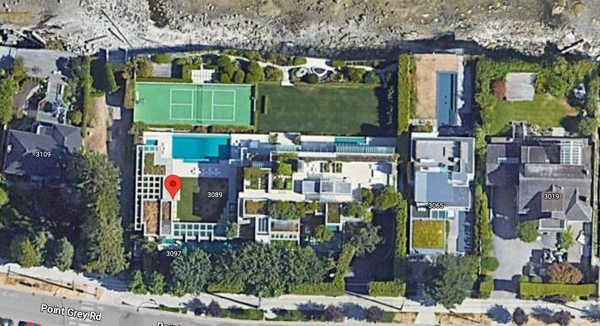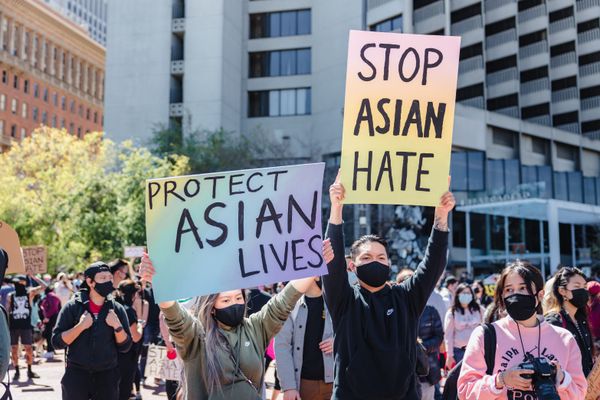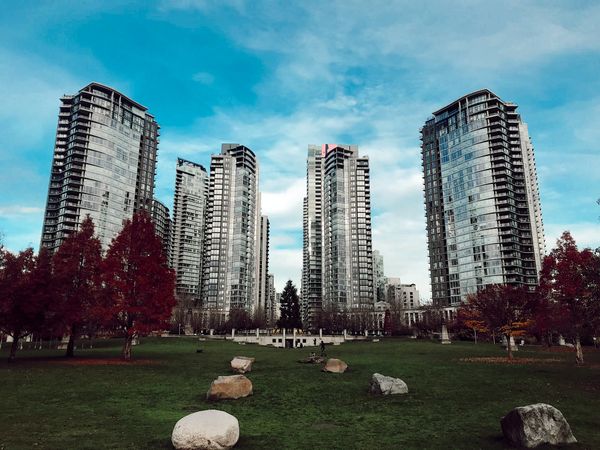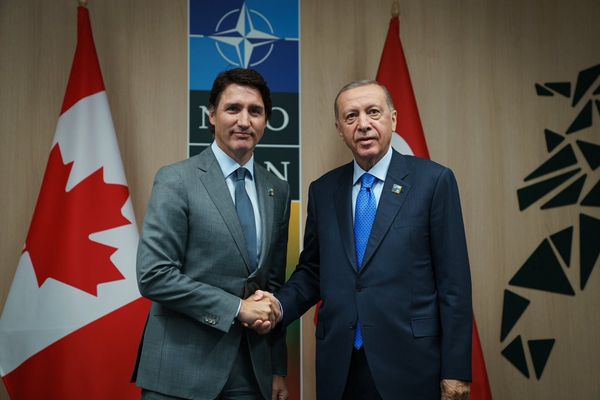Good morning, and welcome to the first edition of The Maple’s politics newsletter. We’ll be providing you with daily election coverage, digging deep into stories that matter to the 99%. If you haven’t already, be sure to sign up for our daily newsletter so you don’t miss the most important stories of this election.
With the long-anticipated snap election called last Sunday, the federal parties are busy campaigning around the country. The Conservatives are pledging to scrap and replace the federal Liberals’ $10 per day child care program with a refundable tax credit, while Prime Minister Justin Trudeau announced that a re-elected Liberal government would extend the Canada Recovery Hiring Program, a corporate subsidy that provides eligible companies with up to 50 percent of employee wages.
Earlier this month, Fahad Razak, an assistant professor at the University of Toronto and a member of Ontario's COVID-19 science advisory table, told CBC it was possible for an election to happen safely during the ongoing pandemic, but that the campaign period should be “as long as possible” to allow for enhanced safety measures.
However, with election day scheduled for September 20, the campaign will be just 36-days long — the minimum length for an election period required under federal law.
Some observers are concerned about the impact the snap election will have on turnout, particularly among low-income and working-class voters.
Simon Black, professor of labour studies at Brock University, told The Maple he thinks the timing of the election is irresponsible.
“(The Liberals have) made the calculation that they don’t necessarily need to see a huge voter turnout in this election for them to win a majority, so it's quite a cynical calculation, quite damaging to the overall health of democracy,” said Black.
In particular, Black explained, voter turnout among low-income and working-class voters has been in decline in most Western capitalist countries since the 1970s, a trend that could be made worse this election by the reality of the ongoing pandemic.
“We know from the political science literature that non-voters are disproportionately low income, working class, and working-class lone mothers, especially, have low rates of voting,” said Black.
“When you combine that with a pandemic, with many workers still considered essential, with many workers working in industries in which their employment rights, including their right to vote, are not respected by their employers, then this tells us there will probably be an even lower turnout amongst those voters,” he added.
Toronto Public Health data last year showed that low-income and racialized groups in the city were disproportionately hit by the pandemic.
As well, said Black, the failure of successive federal governments to make election day a holiday has worsened the problem of low voter turnout.
“There’s not been an effort to actually increase voter turnout by the ruling-class parties in Canada,” he explained. “There’s been no effort to make election day a statutory holiday for instance, where all workers, regardless of their occupation, have the whole day to vote.”
Under federal law, employers are required to give workers three hours’ paid time off to vote on election day. However, Black said, rights on paper don’t always translate to rights in practice.
“For a vulnerable, precarious worker, they may not feel the power in that workplace to assert their rights, including the right to take time off to vote,” he explained.
An anticipated low turnout among low-income voters also means that policies in the Liberal and Conservative party platforms are unlikely to be focused on supporting working people, Black added. This trend, he explained, can be countered by increasing rates of unionization.
“Where there is a strong organized working class, there are policies and there are politics that are more beneficial to a broad range of working class people,” said Black.
More broadly, Black believes conversations around voter suppression need to pay closer attention to measures that go beyond laws overtly aimed at disenfranchising voters, like those passed by Republican legislators in the United States.
“I think we need to start talking about other ways voter suppression happens and that this (Liberal) party and this government has made a calculation based on a lower voter turnout, and I think that’s incredibly corrosive for a democracy to have that kind of cynical, calculated approach to securing their majority,” said Black.
Jerry Dias, president of Unifor, told The Maple that although he is not thrilled by the timing of the election, he believes it is time to mobilize working-class Canadians for the election, and to scrutinize the federal parties’ plans for a pandemic recovery.
“So many Canadians that felt the brunt of the pandemic saw that we had an unemployment insurance system that didn’t work — it crashed,” said Dias. “So who has the best vision for social programs; what is it going to look like? I think we need to move off the ‘geez, why did they call the election?’ to: ‘we have an election, what do we want to come out of it?’”
Dias said his union wants to see plans for Canada to develop domestic personal protective equipment and vaccine manufacturing capacity ahead of future public health emergencies, as well as job creation and plans for building a green economy.
On that last issue, Dias said, the Conservative Party is especially weak.
“At the Conservative convention they couldn’t even get an agreement on a policy paper that said climate change is real, so things like that are certainly going to hurt the Conservative Party and will help the parties with a vision,” said Dias. “The problem that they’ve got is that Erin O’Toole has no control over his party. Ultimately they have no plan.”
Dias added that childcare and supporting women during the pandemic recovery will be another critical issue for his union’s membership this election.
“We know that women were more negatively impacted during the pandemic than men, so we need an economic plan that’s based on equality,” said Dias.
"Whoever gets elected, the childcare initiative introduced by the Trudeau government has to continue," he added.
For more about how the pandemic has disproportionately impacted racialized women, check out these stories:
- Emma Arkell’s explainer on the she-cession for PressProgress.
- Paulette Senior’s piece for iPolitics on how Black women have disproportionately borne the brunt of the pandemic.
Thank you for reading The Maple. We’re not funded by corporations or advertising, which means our public-interest journalism is only possible with support from ordinary readers like you. If you’re not already subscribed to our daily newsletter, please consider signing up today for just $48 per year.

Election News
- The Conservative Party unveiled its election platform yesterday which contains proposals aimed at wooing unionized workers, including a promise to “remove barriers that prevent unions from organizing large employers.” However, Unifor President Jerry Dias, whose union recently broadcasted an anti-Conservative TV ad, told The Maple: “The Conservative Party, I will argue, has never been good to working-class people.”
- Also looking at the Conservative platform, Canadians for Justice and Peace in the Middle East said the Tories’ election pledges include “attacking any efforts by Palestinians and allies to criticize or sanction the Israeli military regime that occupies them.”
- Global BC’s Neetu Garcha grilled Conservative Leader Erin O’Toole over comments he made last year claiming that Canada’s genocidal residential school system was meant to “provide education.”
- Asked yesterday if he would join the NDP in calling for a wealth tax and excess profits tax, Justin Trudeau cited the Liberal Party’s raising of taxes for those earning more than $200,000 per year in 2016, a measure which ultimately resulted in top earners paying slightly more in taxes after some of those earners were given time to shield their income.
- As the Liberal Party and NDP announce all their candidates are required to be vaccinated in order to run, a Conservative Party spokesperson said: “We expect every Conservative candidate to strictly abide by the local health requirements in their jurisdiction, whatever they may be,” reported Global News’ David Akin.
Other Stories
- As Afghanistan falls to the Taliban amid harrowing images of panic and violence, Justin Trudeau said the federal government is working with other countries that were involved in the occupation of that country to resettle 20,000 of Afghans “in the coming weeks,” CTV News reports. NDP Leader Jagmeet Singh said the prime minister “needs to keep that promise.”
- In British Columbia, the White Rock lake wildfire continued to destroy communities in the province’s southern Interior yesterday, with evacuation orders in place for hundreds of homes and thousands more on evacuation alert, the Canadian Press reports. B.C. Premier John Horgan is reportedly vacationing in Atlantic Canada until Thursday, according to News1130.
- The Tyee reports that the RCMP has spent almost $20 million on policing Wet'suwet'en territory, where hereditary leaders opposed the construction of a natural gas pipeline.
LISTEN: The Alberta Advantage team interviews climate justice activist Avi Lewis about how his views fit within today's NDP, and his candidacy for that party in West Vancouver–Sunshine Coast–Sea to Sky.
WATCH: NDP Leader Jagmeet Singh promises to tax the “ultra rich” and companies that “abuse the system” in a campaign speech, vowing to end the “free ride that Liberals and Conservatives have given them” (Global News).
Commentary
- Writing for Passage, Robert Hiltz explains how Canada helped soften the UN’s definition of genocide, while continuing its genocidal policies against Indigenous people.
- In Canadian Dimension, Christo Aivalis looks at how the NDP might stunt the Liberal Party’s hopes for a majority this election.
- Writing for The Breach, Pam Palmater unpacks why Alberta’s anti-energy inquiry aims to undermine First Nations opposition to tar sands.







